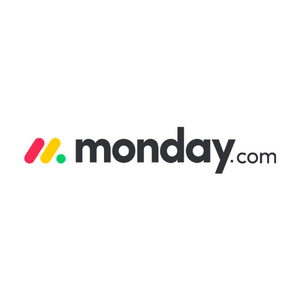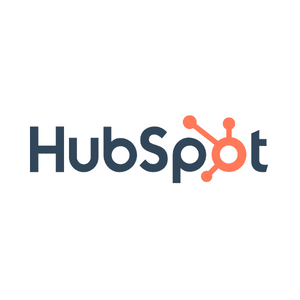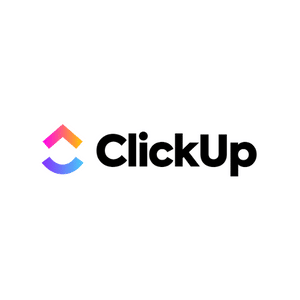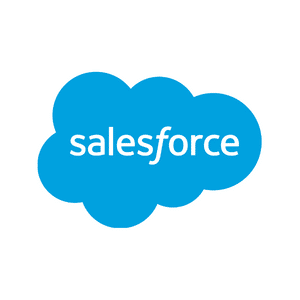Best for Small Businesses
Best for Automations
Best for All Around CRM
Best for Customer Service
Best for Sales Pipeline
If you’re an insurance agent in 2023, there’s no time like the present to get your CRM up and running. After all, the more organized your business is, the better your chances of success. But which CRM should you choose?
Picking the right insurance CRM can help streamline all areas of your insurance business through one software, and is as important as choosing the right insurance aggregators.
After spending over 10 years in the insurance industry, working with many CRM software, the TYB team and I have ranked and reviewed the top CRM software for insurance based on…
- Industry experience
- Comparison of features
- Pricing of each CRM software
- Studied public review
What Is the Best Insurance CRM Software This Year?
The CRM software market for the insurance industry is constantly evolving, so we’re updating this list on a regular basis.
- Monday.com
- HubSpot
- Zoho CRM
- ClickUp
- VanillaSoft
- FreeAgency CRM
- NexJ
- Salesforce
- Odoo
- AgentCubed
- Lucrativ
Monday.com
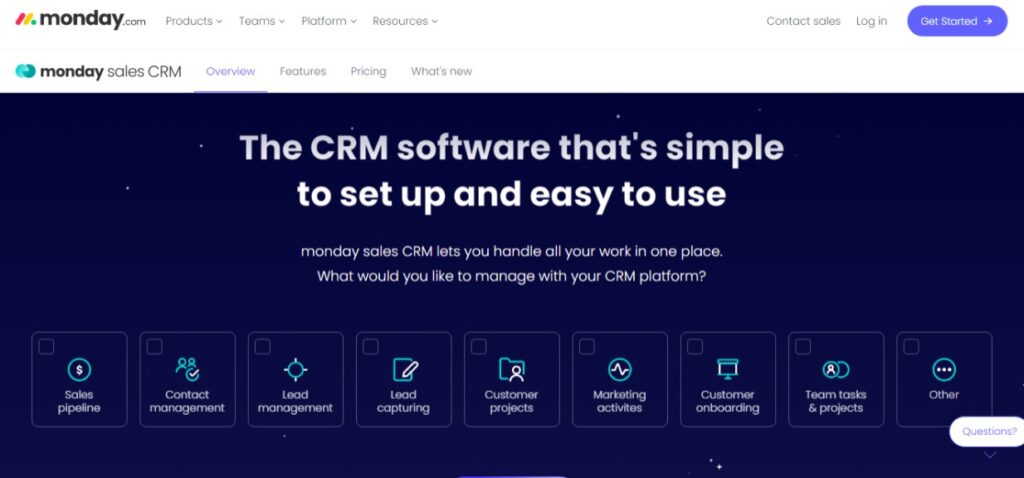
Why We Picked It
If you’re looking for a powerful CRM designed specifically for insurance agents, Monday.com may be the best choice. This all-in-one platform helps you manage leads, customers, and tasks in one easy-to-use interface.
Monday.com also offers features like automated emails, automated text messages, automatic reminders, and more that help you save time while staying on top of customer needs.
Plus, it has a mobile app that lets you access all the information you need in one place—anywhere and anytime.
If you’re looking for an efficient way to keep your insurance business running smoothly, Monday.com is definitely worth a try!
Pricing
When it comes to pricing, Monday.com has quite a few different pricing plans, including a free forever plan as well.
Individual Plan: This plan is free and comes with up to two team members, 1,000 leads, and web forms to capture leads.
Basic Plan: This plan costs $10 a month per seat and includes iOS & Android apps, unlimited free viewers, unlimited contacts, and customizable pipelines.
Standard Plan: This plan costs $14 a month per seat and will help automate sales processes and streamline communication. It also includes activity management, quotes & invoices, and custom CRM integrations.
Pro Plan: This plan costs $24 a month per seat and is targeted toward gaining insight into your entire sales cycle and forecasting. It also includes sales analytics, Google calendar, email tracking, and automation.
Pros
- Mobile App Accessibility
- Built-in time tracking
- A free plan is available
Cons
- Fairly expensive pricing model outside of the free plan
- Project goals are tough to track
- Team member’s activity logs are limited
HubSpot
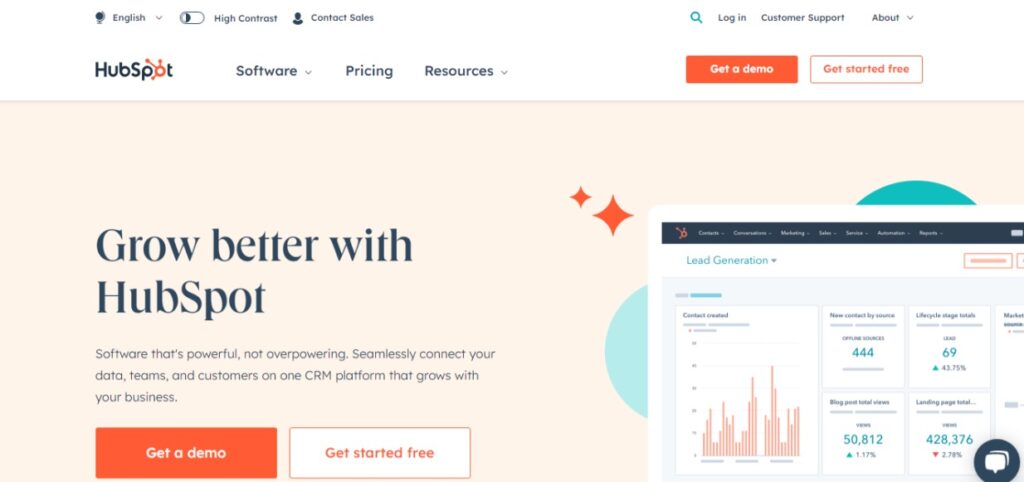
Why We Picked It
HubSpot CRM is one of the most popular CRMs for insurance agents, and with good reason. This platform provides a comprehensive suite of tools to help you manage leads, contacts, deals, campaigns, tasks, and more—all in one place.
HubSpot CRM boasts features like email tracking, contact management & lead scoring, automated workflows, sales automation & reporting, and more that make it a great choice for insurance agents.
Plus, with HubSpot’s mobile app, you can stay connected to your CRM on the go.
If you need a powerful CRM to take your insurance business to the next level, HubSpot might be your best bet.
Pricing
HubSpot CRM has numerous pricing plans along with free tools such as live chat, conversational bots, team email, and more.
Starter Plan: This plan is $45 a month for two paid users and includes email and in-app chat support, multiple currencies, and meeting scheduling.
Professional Plan: This plan is $450 a month, but you receive five paid users, standard CRM integration, forecasting, and advanced phone support.
Pros
- Certain free CRM tools
- A reporting dashboard
- Friendly interface that’s easy to use
Cons
- Contracts are only annual
- Pricing plans get expensive
- Technical support costs additional money
Zoho CRM
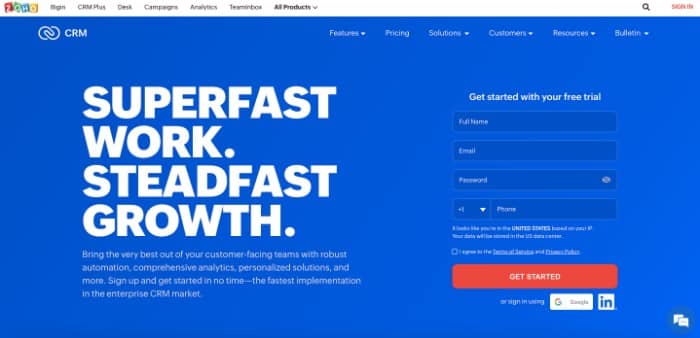
Why We Picked It
As an insurance agent, one of the best CRM software Zoho CRM provides a comprehensive suite of tools to help you manage your customers and leads.
With features like customer support automation, sales automation & forecasting, email tracking, contact management & lead scoring, and more—you’ll have access to everything you need in one place.
Plus, Zoho CRM offers a mobile app that lets you access all the information you need while on the go. So if you’re looking for an efficient way to keep your insurance business running smoothly, Zoho CRM is definitely worth a try!
Pricing
Zoho CRM has a free plan available along with several different affordable pricing plans.
Free Plan: This plan is available for three users and comes with standard reports and task-only reminders.
Standard Plan: This plan is $14 a month for each user and comes with 100 custom reports, 10 custom dashboards, and 20 schedulers per user.
Professional Plan: This plan is $23 a month for each user and comes with standard reports, unlimited custom reports, charts, and KPIs.
Enterprise Plan: This plan is $40 a month for each user and comes with unlimited custom dashboards, 10 trends for the anomaly detector, zia notification, and more.
Pros
- Integrates with Google Suite tools
- Helps with task and lead management
- AI helps turn leads into customers
Cons
- Few advanced features for an insurance agency
- Limited custom fields
- AI key features only for higher pricing plans
ClickUp
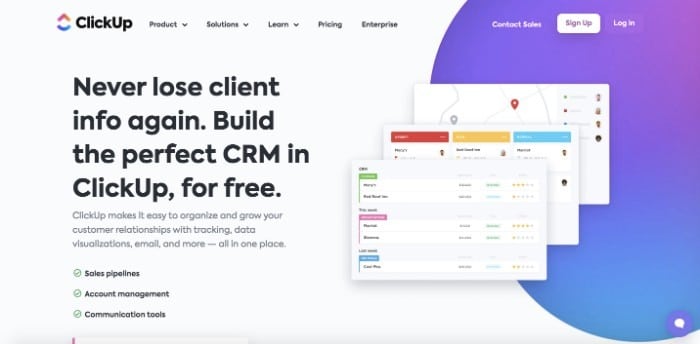
Why We Picked It
There are insurance agencies all over the country that trust ClickUp for their CRM software needs. This platform offers features like task management, sprints & kanban boards, project goals & milestones, and even a mobile app for easy access on the go.
ClickUp also has custom fields that you can use to customize tasks, such as duration or assigning tasks to insurance agents in different states.
Plus, with ClickUp’s advanced analytics, you can track your team’s performance, analyze data, and gain insight into how your business is doing.
If you want powerful CRM software that gives you the flexibility to customize tasks and measure performance, ClickUp might be the perfect choice for your insurance agency.
Pricing
As mentioned above, ClickUp is tough to beat when it comes to pricing. When comparing CRM for insurance agencies, ClickUp has some of the cheapest pricing available.
Unlimited Plan: This plan is $5 each month per member and is great for small teams. This plan includes unlimited Gantt charts, resource management, unlimited storage, and agile reporting.
Business Plan: This plan is $12 each month per member and is best for mid-sized teams. This plan includes workload management, timelines, custom exporting, and production schedules.
Business Plus Plan: This plan is $19 each month per member and is best for multiple teams. You will get custom role creation, admin training webinars, custom permissions, and lead generation.
Pros
- Fairly good pricing plans
- Real-time reporting
- Project management customization
Cons
- Time-tracking features could be updated
- More difficult to use than other insurance CRM
- Layout of the website is difficult to follow
VanillaSoft
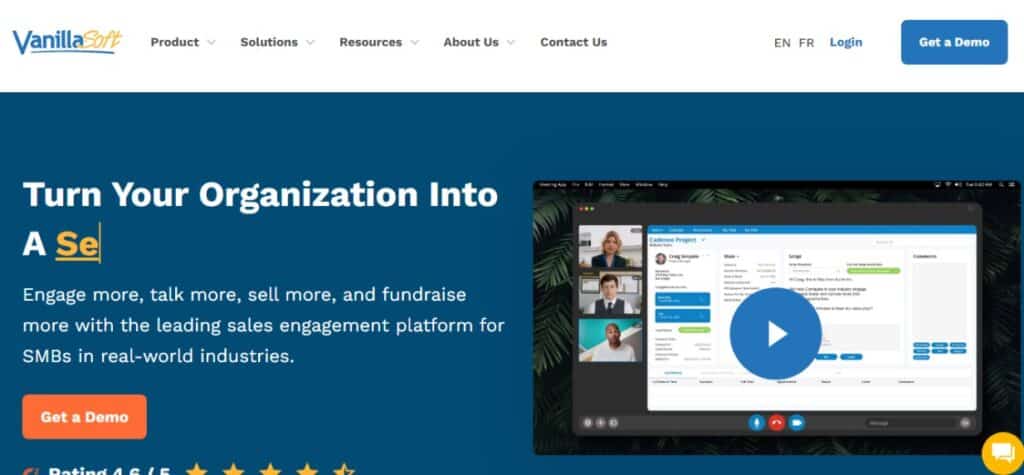
Why We Picked It
VanillaSoft is one of the best CRM software platforms for insurance agents. It offers features like contact management, automated email campaigns, leads scoring & qualification, and powerful phone dialing capabilities that help you make more sales.
With VanillaSoft, you can quickly track customer activity to see who’s been contacted—and how well you’re doing in terms of follow-up and closing deals.
Plus, VanillaSoft has a mobile app that gives you all the tools and features you need while on the go. So if you want an efficient way to stay connected with your clients, then VanillaSoft could be the right choice for your business.
Pricing
VanillaSoft offers a 14-day free trial. They also have a pricing plan that starts as low as $99 per month. The pricing plans do vary, so be sure to check out the site for more details.
Pros
- The lead management system is very good
- Scripting suggestions for insurance agents during the sales process
- Strong all-in-one sales tools
Cons
- Need to email the company to get specific pricing details
- This insurance agent CRM takes time to learn
- The site can be difficult to navigate at points
FreeAgency CRM
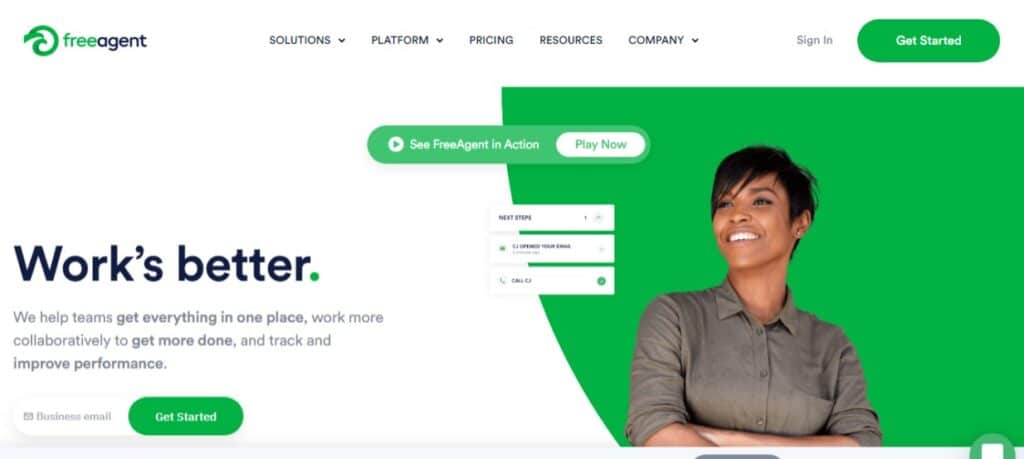
Why We Picked It
FreeAgencyCRM is one of the top CRM for insurance agents in today’s market. This software offers features like task automation, appointment reminders, lead generation tools, and a comprehensive customer relationship management system.
The Anomaly Detector helps you identify and address problems quickly. The Zia Notification enables you to stay up-to-date with customer activities. And the Follow-Up Manager enables you to follow up on calls and emails.
FreeAgencyCRM also has a mobile app, allowing you to access all of your CRM data from anywhere in the world. So if you need powerful tools to better manage customer relationships and stay organized, then FreeAgencyCRM could be the perfect choice for your insurance agency.
Pricing
FreeAgencyCRM has several pricing plans that include no-user minimums and a free trial period.
Starter Plan: This plan is priced at $35 a month per user for the annual plan and includes Zapier integration, 10,000 records, real-time email sync, and more.
Professional Plan: This plan is priced at $75 a month per user for the annual plan and includes plug-in-based apps such as Zoom phone and Slack, a customizable UI logo and theme, and an audit log.
Enterprise Plan: This plan is $100 a month per user for the annual plan and includes direct API access, removing free agent branding from emails, marketing campaigns, and more.
Pros
- Good sales pipeline visibility
- Sales forecasts for ROI
- Lead management available
Cons
- Not targeted specifically for insurance agencies
- Dashboards can be complicated
- It may not be a good fit for insurance agencies with under 10 employees
NexJ
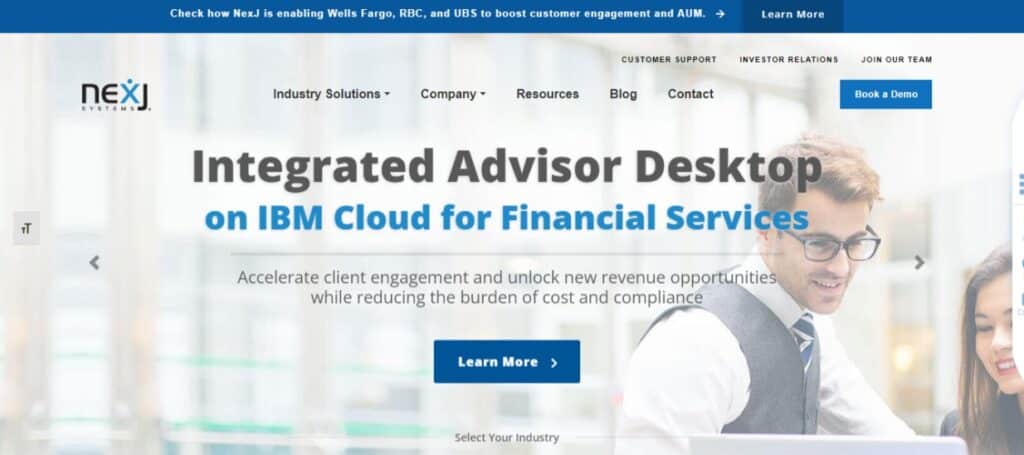
Why We Picked It
NexJ is one of the best CRM for insurance agents. It offers features like automated document generation, task scheduling and tracking, custom alerts and reminders, lead scoring and nurturing tools, as well as advanced analytics capabilities.
Plus, NexJ provides a top-notch customer experience with its integrated customer service portal that enables you to provide customers with the best service possible.
NexJ also offers a mobile app that allows you to access all of your CRM data on the go. And if you need help getting set up, NexJ provides free training and support so you can be sure you’re making the most out of its features.
Pricing
Pricing plans may vary depending on your needs. Check out the site for more details.
Pros
- Overall great user experience
- Really strong SEO
- Flexibility in UX and UI
Cons
- More expensive than other CRM software
- Poor plugin options
- Needs development to make specific changes
Salesforce
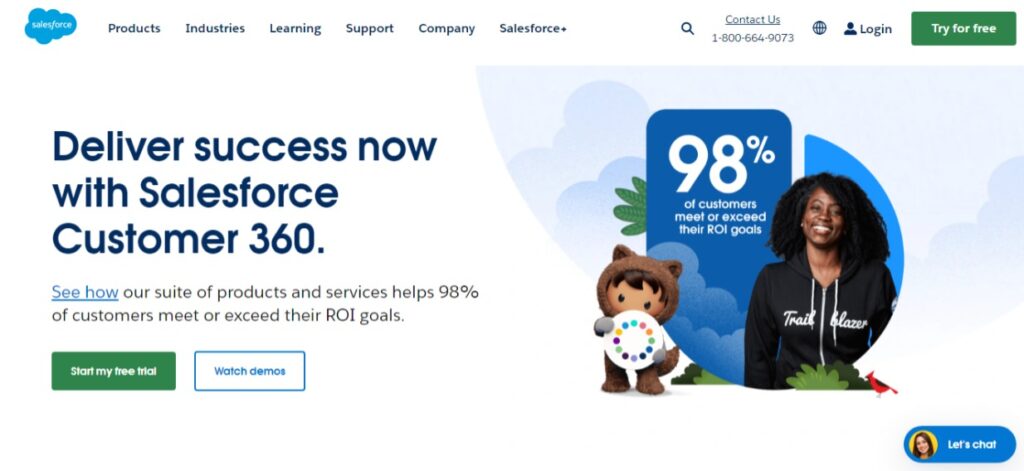
Why We Picked It
Salesforce is one of the top CRM for insurance agents. It offers a wide range of features, such as customer relationship management tools, lead management tools, and sales forecasting capabilities.
The Salesforce AppExchange enables you to access thousands of pre-built applications, ensuring that you can customize your system to fit your specific needs. Plus, Salesforce’s customer service team is available 24/7 to help you with any questions or issues you may have.
Salesforce also has a mobile app, making it easy for insurance agents to access their CRM data from anywhere in the world.
So if you need advanced CRM capabilities and excellent customer service, then Salesforce is a great choice for your insurance agency.
Pricing
Salesforce has a free trial available, which includes online training, live onboarding webinars, sales tools, and more.
Further pricing plans vary depending on your needs, be sure to check out the website for more details.
Pros
- Highly customizable
- Salesforce kit of marketing tools and insurance sales
- Self-service tools for customer management
Cons
- The connection can sometimes be unstable
- Less control of CRM upgrades compared to another CRM system
- More expensive than other CRM software for insurance
Odoo
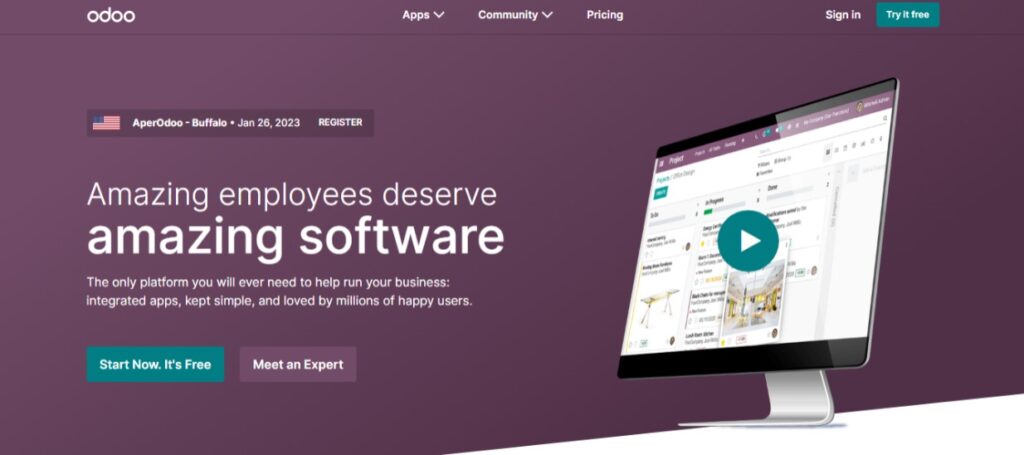
Why We Picked It
Odoo is a powerful open-source CRM for insurance agents. It offers a wide range of features, including sales and invoicing modules, email integration, contact management tools, and more.
Plus, Odoo comes with its own suite of marketing automation tools that allows you to automate tasks such as lead nurturing campaigns and customer segmentation.
And if you need help setting up and using Odoo, the platform provides free tutorials and support so you can easily get started.
Pricing
Odoo has a free plan that includes one app with unlimited users.
Odoo has a couple of different pricing plans that offer different packages of apps and modules for all your insurance agency needs.
Standard Plan: This plan costs $24.90 a month per user and includes Odoo online, CRM, sales, marketing, and other apps.
Custom Plan: This plan costs $37.40 a month per user and includes external API, Odoo studio, POS, and more.
Pros
- Option to create custom insurance sector apps
- CRM tools that are accessible by insurance agents
- Has available mobile CRM
Cons
- Pricing is expensive compared to other insurance CRM
- A Steep learning curve to use CRM system
- Documentation isn’t with one centralized source
AgentCubed
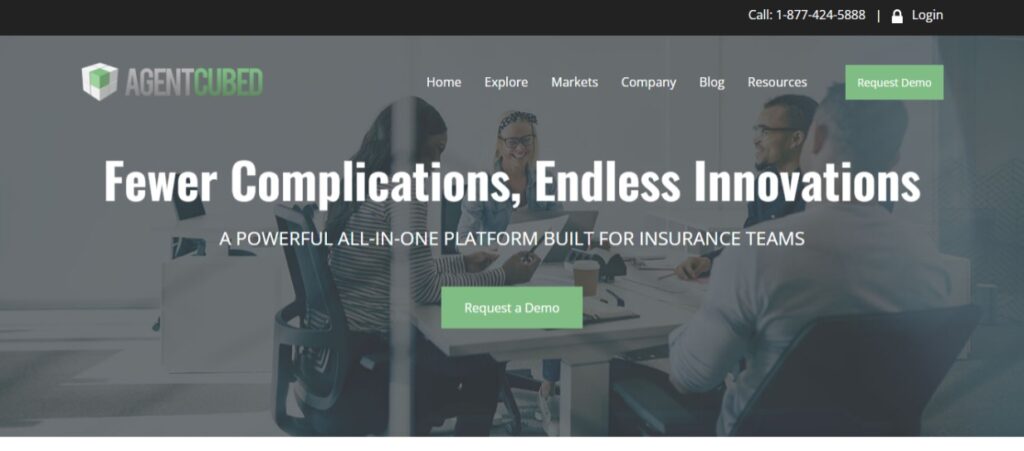
Why We Picked It
AgentCubed is one of the best CRM for insurance agents out there. It offers a powerful suite of features that enable users to manage customers, track leads, and generate quotes.
It also provides advanced analytics capabilities, so you can gain valuable insights into customer behavior and make better decisions about your marketing campaigns.
Plus, AgentCubed has an easy-to-use interface with drag-and-drop capabilities, making it simple for insurance agents to get up and running quickly.
Pricing
AgentCubed offers a free demo to new users. Pricing plans vary depending on your insurance agency’s needs. Check out the site for more details.
Pros
- Support for detailed reporting and analytics
- Designed to meet the specific needs of the insurance industry
- Skill-based customer routing
Cons
- No free trial of this CRM software solution
- No mobile apps supported
- Integration is limited
Lucrativ
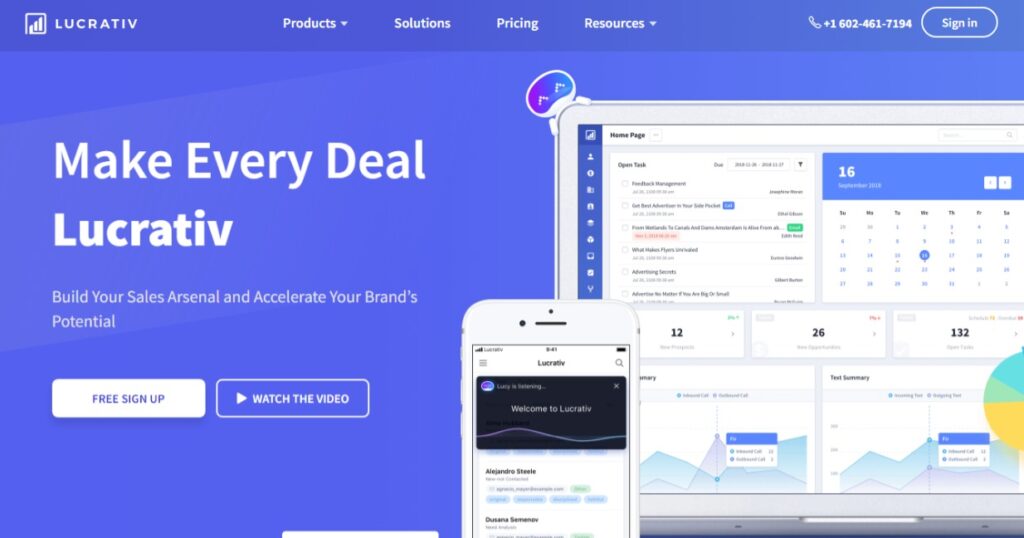
Why We Picked It
Lucrativ is one of the most comprehensive CRM solutions for insurance agents. It offers a wide range of features that enable users to manage contacts, create custom quotes and policies, set up automated lead management, and more.
It also has advanced analytics capabilities to help you make better decisions about how to reach your customers. Plus, Lucrativ offers 24/7 customer support and a free trial so you can get started quickly.
Pricing
Lucrativ has a free demo available. Pricing plans will vary depending on the needs of your insurance agency. Visit the website for further details.
Pros
- Mobile CRM is available
- Automation features and sales pipeline management
- Custom modules available
Cons
- Pricing isn’t upfront for prospective insurance agencies
- Limited marketing tools available
- Not a dedicated insurance agency CRM software
What is an Insurance CRM Software?
Insurance CRM software is a type of customer relationship management (CRM) system that helps insurance companies manage their customers and streamline their processes. It enables users to track leads, generate quotes, analyze customer data and behavior, manage client information, and more.
By using an integrated CRM platform, insurance agents can stay organized, increase efficiency, and increase sales.
The software also helps agents maintain better relationships with their clients by providing insightful information and offering personalized customer experiences.
CRM software for insurance is a great tool for insurance companies to use in order to grow their business and keep customers happy. It allows agents to track leads, generate quotes, analyze customer behavior, and manage clients’ needs.
Benefits of Using an Insurance CRM Software
Email Marketing
One of the most important benefits of using insurance CRM software is that it can help you create effective email campaigns. With a CRM, you can segment your customers into targeted groups, track email open and click-through rates, and personalize messages to ensure they reach their intended recipients.
You can also use the platform to create automated email campaigns that are triggered when certain conditions are met, such as when a customer’s policy is about to expire.
This ensures your customers get the right message at the right time and increases the effectiveness of your marketing efforts.
Referral Marketing
Another benefit of insurance CRM software is that it can help you take advantage of referral marketing. This type of marketing involves encouraging customers to recommend your services to their friends and family, giving them an incentive such as a discount in return.
With the right CRM system, you can track referrals and reward customers for successful referrals.
Automation
Insurance CRM software can help you automate many of your processes. By using an integrated platform, you can streamline and automate customer onboarding, policy renewal notifications, customer service inquiries, and more.
This allows agents to save precious time and money while still providing excellent customer service. Automation also makes it easier for agents to monitor customer interactions and track customer satisfaction.
Policy Tracking
Next, insurance CRM software can help you track policies more efficiently. With a comprehensive platform, you can monitor policy renewals, cancellations, and other important information.
This data can be used to create custom reports, helping agents identify trends and make better-informed decisions about their business. It can also help them anticipate customer needs and provide better customer service.
Commission Tracking
Another part of your business that insurance agent CRM can help you track more effectively is commission. Agents can use the platform to monitor commission payments, identify who is generating the most revenue, and identify potential customers.
This helps agents stay organized and ensures they receive their commissions in a timely manner.
Data Management
Insurance CRM software is a great way to better manage your data. With an integrated platform, you can store customer information securely and access it quickly when needed.
This enables agents to provide efficient and personalized customer service, helping them build strong relationships with their clients. It also helps agents identify trends in customer behavior and create more effective marketing campaigns.
Insights and Reporting
Finally, with insurance CRM software, you can get valuable insights and reports. The platform helps agents track customer interactions, monitor policy renewals, identify trends, measure performance metrics, and more.
This allows agents to make better-informed decisions about their business and ensure they are providing the best service possible. It also helps them better understand customer needs and identify potential new customers.
How We Analyzed These Insurance Business CRMs
Pricing
Pricing was one of the primary factors we used when analyzing these insurance business CRMs. We looked at how affordable the platforms were, their features and capabilities, and the cost of additional features.
We also considered whether they offered discounts or special deals for long-term customers, as well as any hidden or recurring fees. Additionally, we looked into the customer support options available on each platform and how responsive they were to inquiries.
Feature Sets
We also looked at the feature sets offered by each CRM. We assessed how comprehensive the platforms were in terms of analytics, automation, customer segmentation, and data management.
Another segment was what tools they provided to help agents track customers, policies, and commissions. We also examined the platform’s reporting capabilities and how easy it was to generate custom reports.
Other Reviews
In addition to our own research, we also relied on other reviews for further insight into these insurance business CRM platforms. We read user reviews and testimonials to see how others had used the platform, as well as what features they liked and disliked.
Personal Testing
Finally, the TYB team conducted our own personal testing of these insurance business CRM platforms to get a better feel for how they worked. We tested out the features and capabilities of each platform, as well as their customer service response.
Overall, our analysis gave us a better understanding of the different software available and which one would be the best fit for our business.
Insurance CRM Software Conclusion
In conclusion, insurance CRM software is a great way to better manage your business data and provide personalized customer service. It allows agents to track customers, policies, commissions, and more.
Plus, it provides insights and reports that can help them make informed decisions about their business. We hope our analysis has helped you choose the best CRM for your insurance business.
Now that you have the information needed to make an informed decision, why wait? Get started with CRM software for insurance today and take advantage of all its amazing features!
Let us know what you thought of our list! Is there any CRM software for insurance we missed that should be on the list? Also, be sure to comment on which insurance agent’s CRM software you’ve used!
Insurance CRM FAQ
Do insurance companies use CRM?
Yes, insurance companies use customer relationship management (CRM) software to better manage their data and provide personalized customer service.
CRM helps agents track customers, policies, commissions, and more. It also provides insights and reports that can help them make informed decisions about their business.
What is the best CRM for insurance brokers?
The best CRM for insurance brokers will depend on their individual needs and budget. Some of the most popular options include Salesforce, Dynamics 365, and Freshworks.
Each of these platforms offers a range of features that can help insurance brokers better manage their data and provide personalized customer service to their clients.
What is CRM software insurance?
CRM software for insurance is a type of customer relationship management (CRM) software specifically designed to help agents better manage their data and provide personalized customer service.
It allows agents to track customers, policies, commissions, and more. Plus, it provides insights and reports that can help them make informed decisions about their business.
Do all insurance companies use Xactimate?
No, not all insurance companies use Xactimate. It is a computer-assisted estimating tool that helps adjusters quickly and accurately estimate the cost of damages and repair works.
It is one of the most popular solutions among insurance companies, but there are also other solutions available that can be used.
The three most common types of CRM are operational, analytical, and collaborative. Operational CRM helps manage customer data and daily processes.
Analytical CRM collects and organizes data to help companies gain insights. Collaborative CRM focuses on customer engagement, such as through social media platforms.

